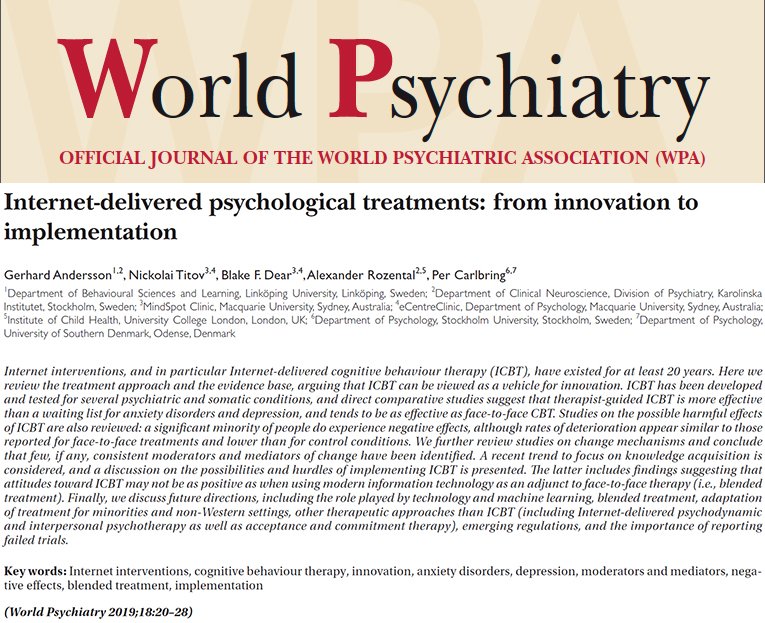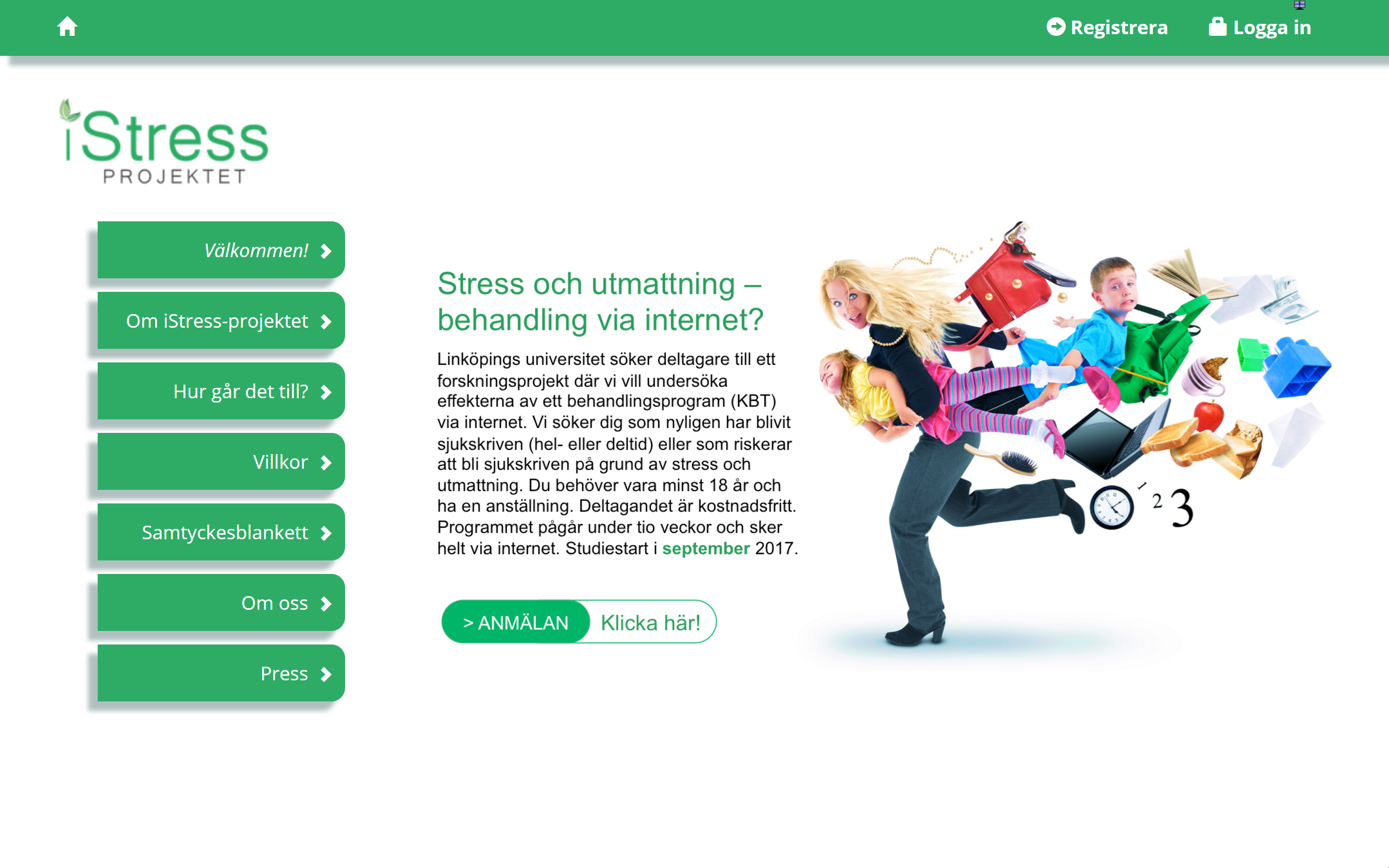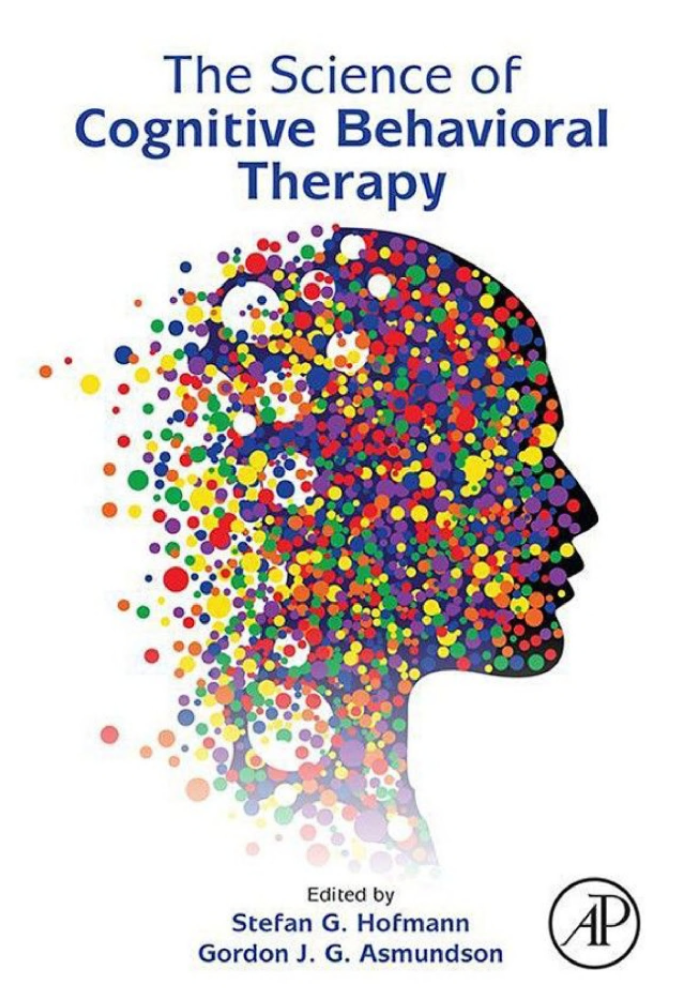Dismantling, optimising, and personalising internet cognitive behavioural therapy for depression: a systematic review and component network meta-analysis
Internet cognitive behavioural therapy (iCBT) is a viable delivery format of CBT for depression. However, iCBT programmes include training in a wide array of cognitive and behavioural skills via different delivery methods, and it remains unclear which of these components are more efficacious and for whom. In a study that was just published in The Lancet … Läs mer!









